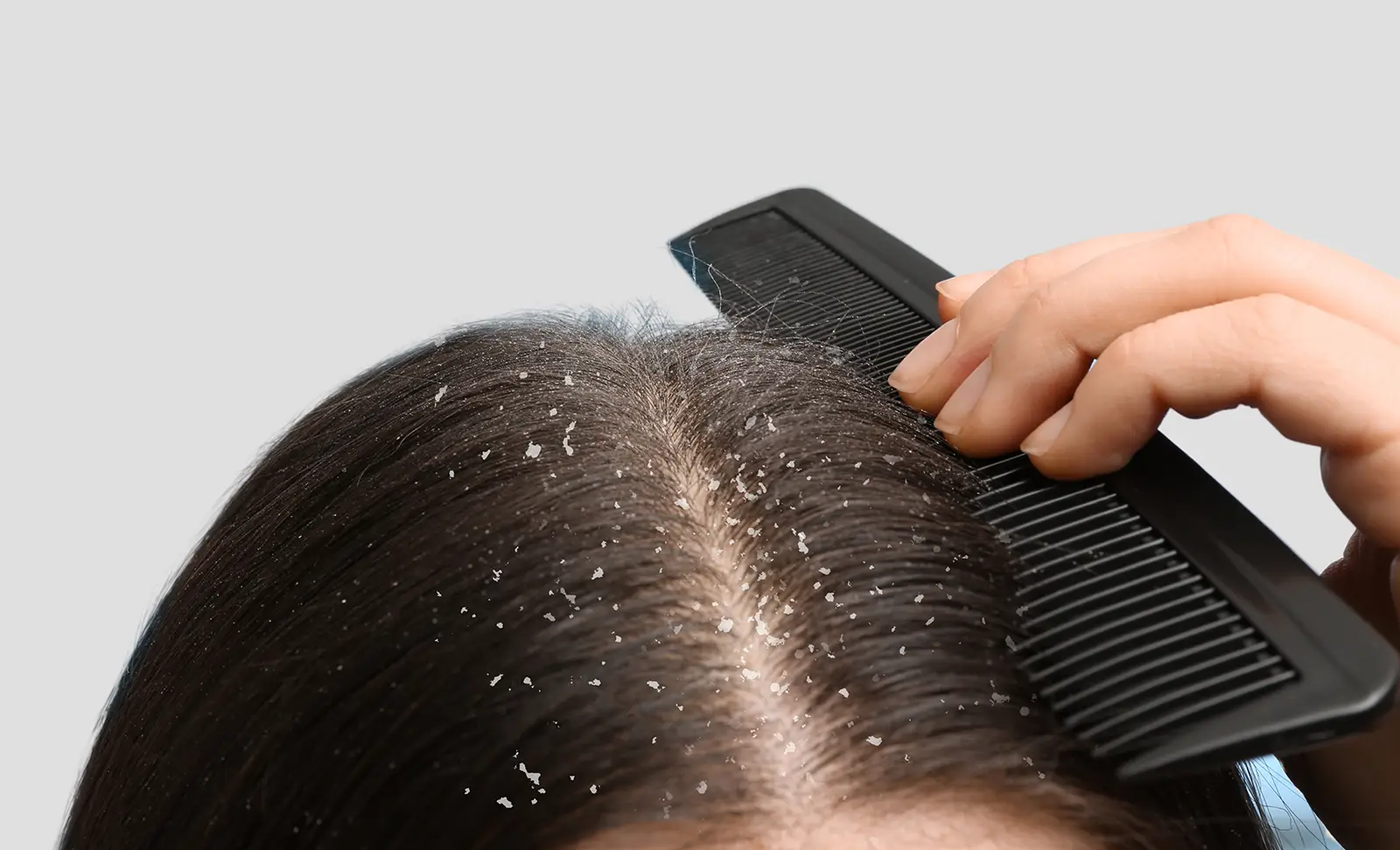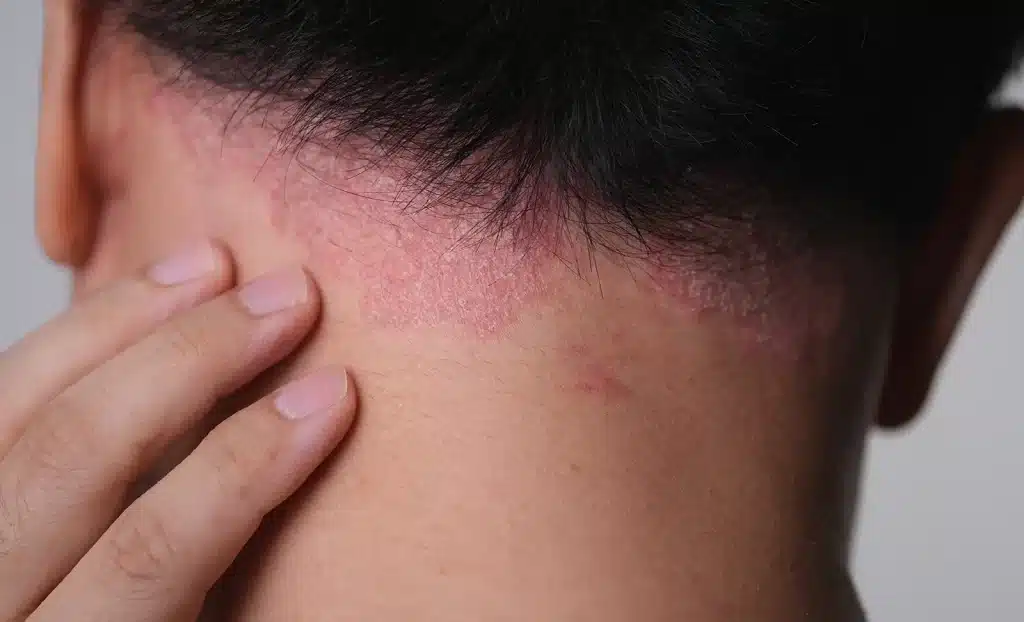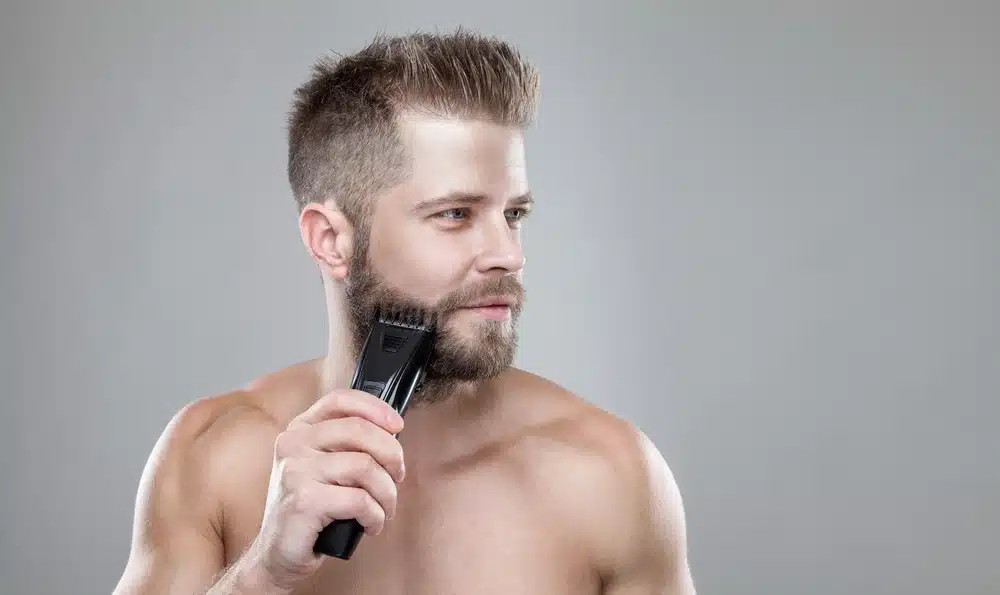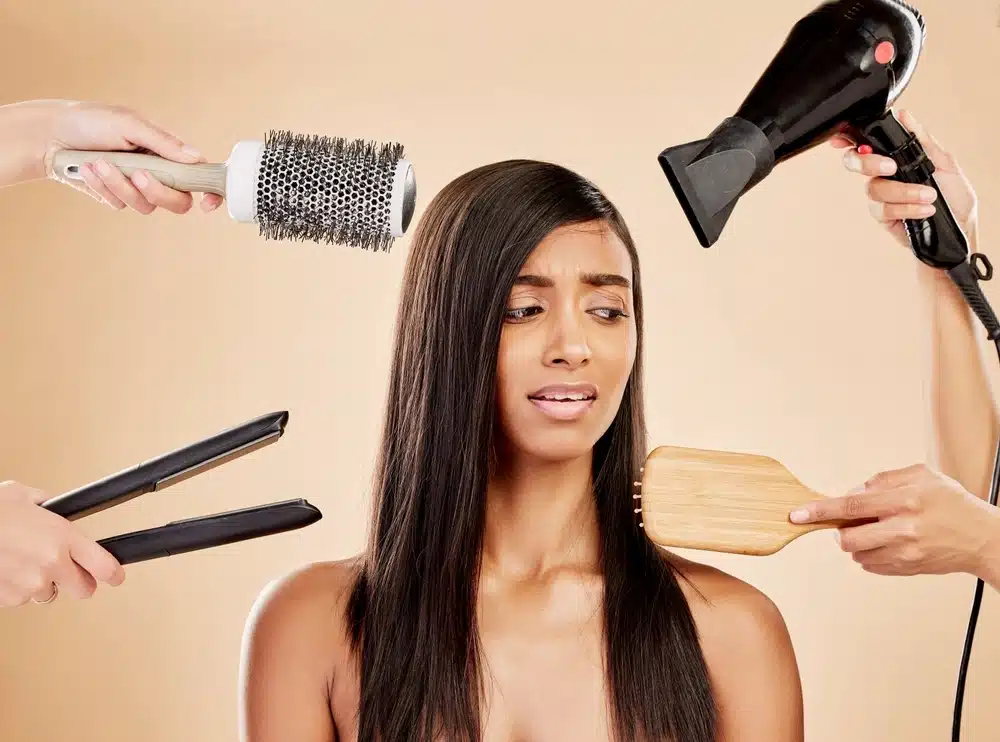It’s common for people to focus on the health of their hair, but what about their scalp? Your scalp deserves just as much attention as your hair. After all, without a healthy scalp, your hair won’t be as healthy or even be able to grow in its entirety.
Scalp scabs are a problem for people with shorter or no hair, too, as the less hair you have, the more noticeable they become. They can also be a source of considerable discomfort, such as itchiness. There’s no doubt that if you have scabs on your scalp, you’ll want to get rid of them as soon as possible. The question is, how do you do that?
In this article, learn all about the different types of scabs you may find on your scalp and what could be causing them. We’ll also discuss scabs that cause hair loss and whether you may need a hair loss treatment.
The Most Common Causes of Scabs on Scalp
The first step to treating scabs on scalp is understanding the cause – you need to know what you’re up against! If you have scalp scabs, they’re likely caused by one of the following problems.
- Psoriasis
Psoriasis is a common skin condition that affects around 2% of people in the UK. [1] It can form anywhere on the skin, creating scaly, flaky, grey patches and an itchy scalp. One of the common areas that psoriasis can show up is on the scalp, so it’s worth considering whether this is what’s causing your scabs.
Psoriasis scabs on scalp can be treated, although there’s no cure. Some of the most effective treatments include medicated shampoos, ointments, steroid creams, vitamin D, and emollients. If you think you have scalp psoriasis, it’s best to speak to a doctor first to diagnose the issue and start a treatment plan.
- Head Lice
Some believe that head lice only affects children, but this isn’t true. While lice tend to be more common in children, anyone of any age can catch them. Head lice are tiny creatures that live in your hair and lay eggs on your scalp, causing itchiness and, in some cases, itchy scabs on scalp.
Head lice can be quite overwhelming, but it’s very treatable. You can simply pick up some over-the-counter medication to get rid of them, which usually involves a shampoo that you leave on and then wash off after a certain period of time. It’s best to use the treatment a couple of times to ensure that all the head lice have gone, as even just one louse can multiply and prolong the problem.
- Dandruff
Dandruff – also known as seborrheic dermatitis – is a skin condition that causes white flakes to form on the scalp. It can also result in dry, flaky scabs that are itchy. These patches can become large and prevent hair growth, so it’s best to get it under control as soon as possible.
The good news is that dandruff is treatable, although it might take several different treatments to find one that works for you. Some shampoos work very well, including ones that include ingredients like salicylic acid and zinc. For severe dandruff that doesn’t go away with over-the-counter shampoos, you can get a prescription shampoo containing ketoconazole [2].
- Acne
When you think about acne, you probably just think about spots on the face, but this isn’t the only area they can occur. In fact, acne is quite common on the scalp, especially for people who have quite severe acne.
Treatment for scalp acne ranges from specific hair products to antibiotics. It’s best to speak to a dermatologist who can diagnose it as acne and start you on a treatment plan to see what works best for you.
- Contact Dermatitis
Contact dermatitis is a specific kind of skin condition that only produces symptoms when you touch something you’re allergic to. It can create symptoms such as dry, red, and itchy skin, which can also occur on the scalp.
If it does flare up on your scalp, you should think about the different hair products you’ve been using to understand what you’re allergic to. For example, a hair dye might be the cause of your contact dermatitis. It could also be a shampoo, conditioner, or hairspray. If you can’t figure out what’s causing your contact dermatitis, see a doctor, as they can run allergy tests.
- Folliculitis
Folliculitis is a scalp condition that occurs when the hair follicles become infected. It commonly happens after shaving the head. Instead of scab patches, folliculitis usually shows up as smaller dots scattered all over the scalp. To treat it, you can get an over-the-counter hydrocortisone cream and apply it to the scalp twice a day.
- An Injury
Sometimes, an injury may cause a scalp with scabs. Usually, you’ll know if it’s caused by an injury, and you’ll simply have to wait it out and treat the scabs at home (for example, by disinfecting the wound).
However, in some cases, a scalp injury can lead to infection, causing symptoms such as tenderness, discolouration, and oozing. If this happens, schedule an appointment with your doctor as soon as possible.
Preventing Scabs on Scalp
You now know the most common causes of scalp scabs, but what about preventing them? Prevention is always easier than treatment, so use these hair health tips to keep your scalp in its best condition.
- Wash Hair Regularly
While not everyone needs to wash their hair every day, you shouldn’t wait too long in between washing, otherwise you risk a build-up of dirt which can cause infection. If you have fine hair, washing daily is typically best. If you have thicker hair that doesn’t get greasy as quickly, aim to wash your hair at least once or twice a week.
- Be Careful When Shaving the Scalp
One of the common causes of folliculitis is shaving the head. To prevent this, follow a routine when shaving your scalp – don’t just go in with a razor and hope for the best! Instead, exfoliate your scalp before shaving and use a fresh, clean, sharp razor every time.
- Use a Gentle Shampoo
If you have a sensitive scalp, use a gentle shampoo. One that’s fragrance-free tends to work best for preventing scabs and other scalp conditions. Also, be gentle when using the shampoo, ensuring that you use circular motions when massaging it into your scalp.
- Protect Your Child’s Scalp from Lice
It’s very common for children to get lice while they’re at nursery or school. You can prevent your child from getting lice by giving them a protective hairstyle to wear to school, such as a plait. While it won’t definitely mean they (and, in turn, you) won’t get lice, it will reduce the chances. Also, treat lice as soon as you see any signs of them, as they can quickly grow out of control.
- See a Doctor if You Develop Scabs
If you have a scalp with scabs and don’t know the cause, always see a doctor as soon as possible. The earlier something is caught, the easier it will be to treat.
Are You Worried About Hair Loss?
Have your scalp scabs caused hair loss? This isn’t an easy thing to deal with. If this has happened, see a doctor or dermatologist, as the best way to encourage hair growth is to treat the underlying cause of the scalp scabs. If your hair follicles are damaged, your hair won’t be able to grow through.
If you’ve treated the scabs and still have a problem with hair loss, look into hair loss treatments such as minoxidil, finasteride, or even a hair oil like rosemary oil. These simple treatments may help to stimulate new hair growth and help you to regain your confidence. However, if these don’t work, you may want to try something with more effective results, like a hair transplant.
Getting a Hair Transplant
Getting a hair transplant can be a difficult decision to make. It’s usually a good option for those who have experienced hair loss for quite some time and have a noticeable area of balding/thinning.
Also, you’ll need to clear up your scalp scabs before opting for a hair transplant – this isn’t a route to go down before treatment! After all, a hair transplant requires a healthy donor area.
If you want to see what a hair transplant can do for someone with hair loss, check out our patients gallery.
Scabs on Scalp: In Summary
There are many causes of itchy scabs on scalp. If you’re dealing with scalp scabs, the best first step is knowing the cause so you know how to treat it. After all, the treatment for scalp acne, for example, differs from treatment for scalp psoriasis. To get a clear idea of the issue, always speak to a doctor, as they can examine and diagnose the issue and get you on a proper treatment plan.
If hair loss is more of an issue than scalp scabs, then you’re in the right place at Harley Street Hair Clinic, as we specialise in hair restoration. If you want to gain access to our consultations and keep track of your hair loss and growth, download our hair track app today.
Sources:



